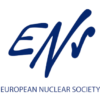Urenco Stable Isotopes Joins UNRANU Research Programme
Urenco (ENS Corporate Member) Stable Isotopes recently joined the Understanding the Radiobiology of therapeutic medical radionuclides (UNRANU) programme as a consortium partner.
The UNRANU programme is developing new production routes for radionuclides; finding the best match between radionuclide and tumour type, determining the optimal treatment dose, and investigating how treatment effectiveness is influenced by the immune system.
The programme could potentially lead to new applications of isotopes from Urenco’s current product portfolio, or to the development of new isotopes of interest which are currently not produced.
The combined expertise of the consortium partners spans the entire supply chain from radionuclide production, radiobiology, immunology, patient experience, society, and industry. Another ENS Corporate Member, NRG, operating the High-Flux reactor in Petten, is actively involved in the programme.
This creates a unique multidisciplinary research environment where there is access to various therapeutic radionuclides and tools. Using these, studies can be performed on radionuclides’ biological effects in 2D, 3D and in vivo (within the body of a living organism) models, using already established technologies, combined with highly innovative evaluation methods.
Medical applications of nuclear technology are used all over the world. Every year, 30 million people benefit from a diagnostic procedure or treatment by nuclear medicine for at least 60 different pathologies – and these numbers are steadily increasing. In Europe, four reactors are responsible for the vast majority of medical isotope production – the High Flux Reactor in The Netherlands, the BR2 reactor in Belgium, the LVR15 in the Czech Republic and the Maria reactor in Poland, but new facilities are crucial in order to meet the rising global demand.
Last year, the European Nuclear Society dedicated several events and activities focusing on nuclear medical applications and radioisotopes production and supply. This one has been also the key topic of the Panel Discussion, opening the last European Research Reactor Conference (RRFM) in Budapest, and it will be a fundamental debate also at the upcoming RRFM 2023 in Antwerp.
